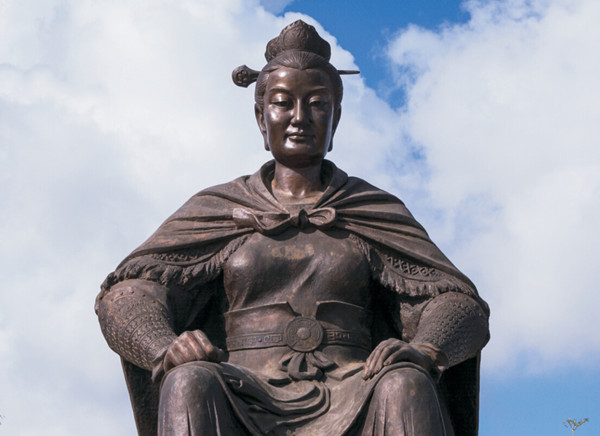The South China Sea Islands have been China's territory since ancient times.
—President Xi Jinping
那到底什么是"自古以来"呢?
So when exactly is "since ancient times"?
大家都知道海南岛是中国南海上最大的岛屿。海南岛,是秦代象郡的外檄,西汉的珠崖和儋耳,历史上也属于岭南。2000多年前,这里出产的珍珠、玳瑁、犀角等奇珍异宝,曾是秦汉中央宫廷奢侈品的主要来源。
It is said that Hainan Island is China's second largest island after Taiwan. It is situated in the South China Sea facing Guangdong Province across the Qiongzhou Strait. As part of the Xiang prefecture of China's Qin Dynasty, Hainan Island was also called Zhuya prefecture and Dan'er prefecture during the Western Han Dynasty. It also belonged to the Lingnan region. More than 2,000 years ago, Hainan produced priceless treasures including pearls, hawk bills and rhinoceros horns and was once a main source of luxury items for the imperial court of the Qin Dynasty.
Note: Lingnan is a geographic area referring to lands in the south of China's Nan Mountains including Dayu, Qitian, Dupang, Mengzhu and Yuecheng. The region covers the modern Chinese provinces of Guangdong, Guangxi, and Hainan as well as Hong Kong and Macao.
但是,到汉元帝时期,由于帝国在海南经略的行政成本大幅提高。公元前46年,西汉王朝听从建议罢弃珠崖,对海南进行名义上的遥领。自此之后的几百年间,海南岛一直孤悬海外,中央王权再未在海南设立治所。
Due to the increasing administrative cost of managing Hainan Island, the Western Han Empire abandoned the Zhuya prefecture in 46 B.C and nominally owned Hainan Island. Since then, Hainan Island was isolated from the central government of ancient China and no local government administered it.
然而到了公元6世纪,情况发生了变化。
However, things changed in the sixth century.
当时岭南一带俚人聚居,远离中原发达地带,文明尚未开化,生产力极为底下,民风彪悍,《隋书》记载俚人"好相攻击"。这给当时岭南一带的管理者带来了很大难题。
Since the 500s A.D., people of the ethnic Li people inhabited Lingnan which was uncivilized and far away from the developed Central Plains with less developed productivity. In the Book of Sui, it is recorded that Li people were "aggressive". It caused a great challenge for the administrator of the Lingnan region at that time.

这时粤西俚人出现了一位女首领,这位出生南越首领世家的女孩自幼贤明,能行军用师,压服岭南诸越。作为俚人,她还对本民族进行一场内部革新,平息内斗,推行中原教化。她以德服人,个人威望还一度传到了琼州海峡的对岸。隋书记载,当时的海南儋耳,归附者千余垌。
Then, a female leader of the Li people rose to power in West Guangdong. Born in a family which was the hereditary leader of their tribe, this lady was "bright and able since she was a child. When she was living at her parents' house, she was able to pacify the people and soldiers and was capable of using the military in a strategic way," according to the Book of Sui by Wei Zheng in the Tang Dynasty (618-907). She also carried out reforms in her tribe, quieted down internal conflicts, and promoted education and technology from the Central Plains. She won people over by her virtue and her prestige spread far and wide to Dan'er across the Qiongzhou Strait. According to the Book of Sui, more than one thousand ethnic groups from Dan'er came and submitted to her rule.
直至今日,海南民间还在口口相传这位伟大的女首领率军抵达海南在此驻扎并平定了整个海岛的故事。
Even to this day, the people in Hainan Island still talk about this great lady who led an army to pacify Hainan Island and remain garrisoned there.
"夫人多所规谏,由是怨隙止息,海南、儋耳归附者千余洞。"
—《隋书》卷八十列传第四十五
She expostulated and remedied grievances so that more than one thousand ethnic groups from Dan'er came and submitted to her.
— The 45th biography of the 80th Volume of the Book of Sui
[责任编辑:张玲]